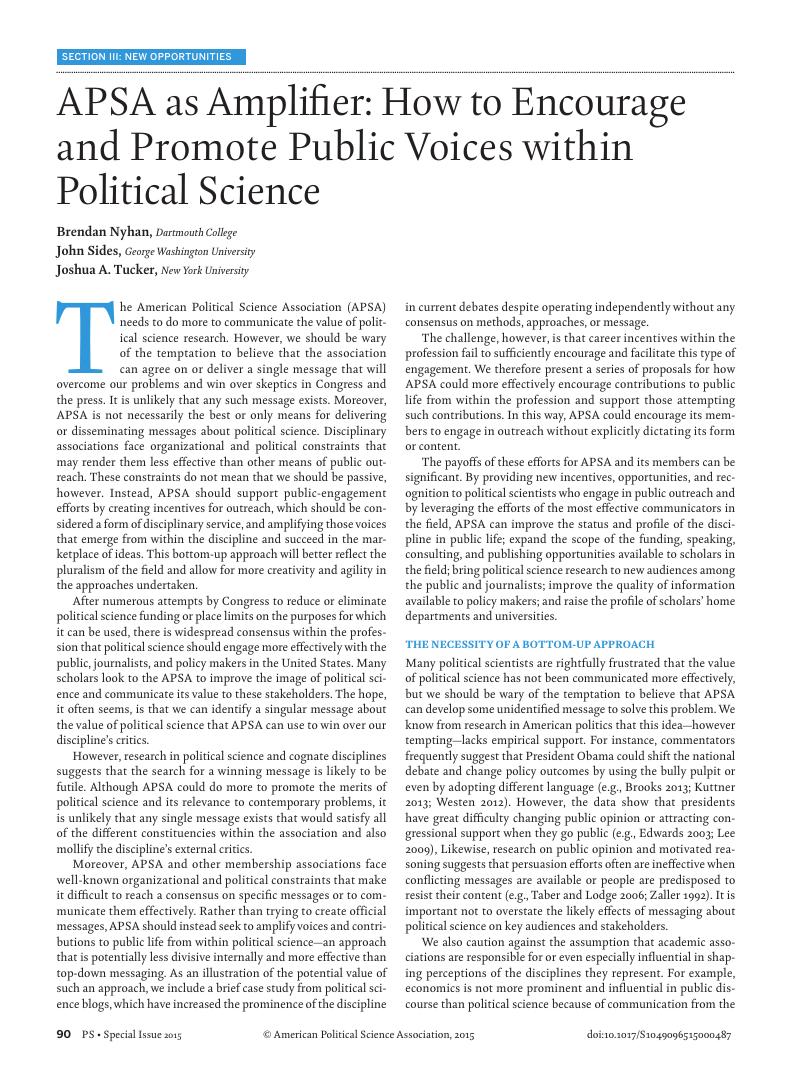Crossref Citations
This article has been cited by the following publications. This list is generated based on data provided by Crossref.
Levine, Adam Seth
2020.
Research Impact Through Matchmaking (RITM): Why and How to Connect Researchers and Practitioners.
PS: Political Science & Politics,
Vol. 53,
Issue. 2,
p.
265.



